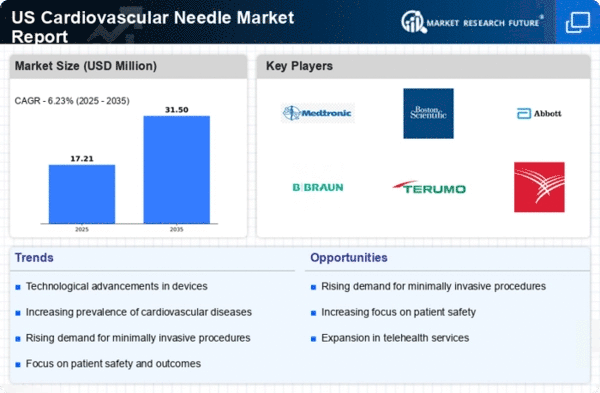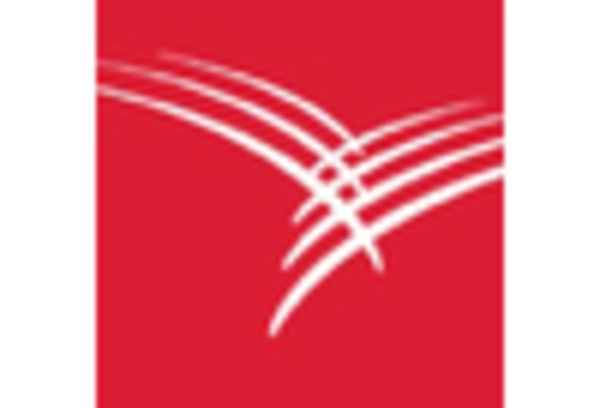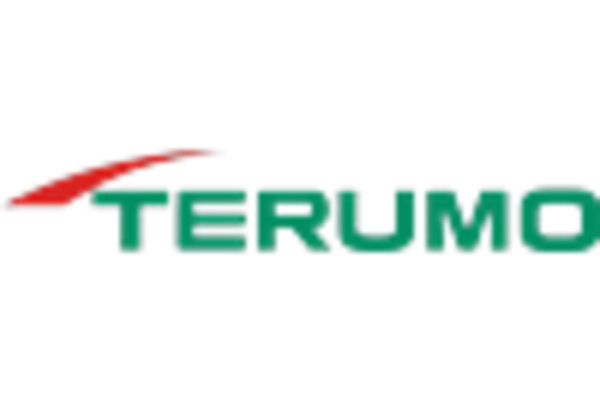Rising Cardiovascular Diseases
The increasing prevalence of cardiovascular diseases in the US is a primary driver for the cardiovascular needle market. According to the CDC, heart disease remains the leading cause of death, accounting for approximately 697,000 deaths annually. This alarming statistic underscores the urgent need for effective diagnostic and therapeutic interventions, which rely heavily on advanced cardiovascular needles. As healthcare providers seek to improve patient outcomes, the demand for specialized needles designed for cardiovascular procedures is expected to rise. This trend is likely to propel market growth, as hospitals and clinics invest in state-of-the-art equipment to enhance their cardiovascular care capabilities.
Regulatory Support and Innovation
The cardiovascular needle market benefits from robust regulatory support that encourages innovation and the introduction of new products. The FDA has streamlined the approval process for medical devices, including cardiovascular needles, which facilitates quicker access to advanced technologies. This regulatory environment fosters competition among manufacturers, leading to the development of innovative needle designs that enhance precision and safety during procedures. As a result, the market is witnessing a surge in new product launches, which could potentially increase market share and drive revenue growth. The emphasis on safety and efficacy in cardiovascular procedures further amplifies the need for high-quality needles.
Increased Awareness and Preventive Care
There is a growing awareness of cardiovascular health among the US population, which is driving the cardiovascular needle market. Public health campaigns and educational initiatives have emphasized the importance of early detection and preventive care in managing cardiovascular diseases. As individuals become more proactive about their health, there is an increased demand for diagnostic procedures that utilize advanced needles. This trend is likely to encourage healthcare providers to invest in high-quality cardiovascular needles to meet the rising expectations of patients. Consequently, the market may experience growth as more individuals seek preventive care and timely interventions.
Technological Integration in Healthcare
Integrating advanced technologies into healthcare is transforming the cardiovascular needle market.. Innovations such as digital imaging and robotic-assisted surgeries are enhancing the precision and effectiveness of cardiovascular procedures. These technologies often require specialized needles that can accommodate new techniques, thereby increasing demand within the market. Furthermore, the adoption of telemedicine and remote monitoring solutions is likely to influence the design and functionality of cardiovascular needles, as healthcare providers seek to improve patient care. This technological evolution may lead to the development of needles that are not only more efficient but also tailored to meet the needs of modern medical practices.
Aging Population and Healthcare Expenditure
The aging population in the US is a significant factor influencing the cardiovascular needle market. As individuals age, the risk of developing cardiovascular conditions increases, leading to a higher demand for medical interventions. The US Census Bureau projects that by 2030, all baby boomers will be over 65, resulting in a substantial rise in healthcare expenditure. This demographic shift is likely to drive investments in cardiovascular care, including the procurement of advanced needles for various procedures. Consequently, healthcare facilities are expected to allocate more resources towards acquiring innovative cardiovascular needles, thereby stimulating market growth.
















